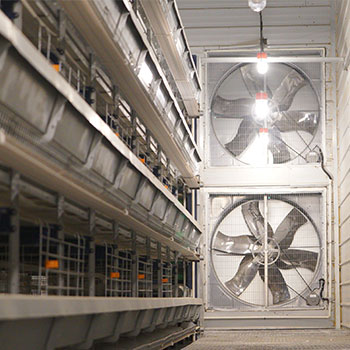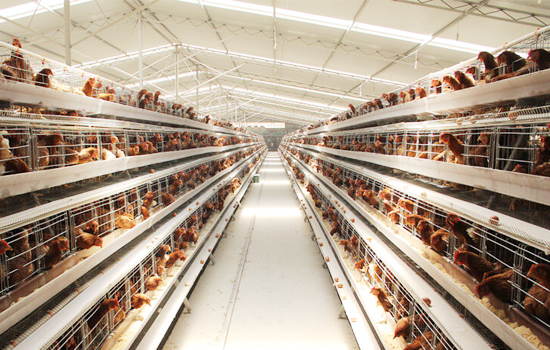Mechanism characteristics of battery cage system automatic manure cleaning machine
- Published in Tips for Chicken Breeding
The automatic manure cleaning machine in the battery cage system is a new product produced according to the needs of farmers with the continuous development of the breeding industry and the continuous expansion of the scale in recent years.
The production of aquaculture manure cleaners reduces the labor intensity of breeding, reduces labor costs, and brings good news to farmers.
The traction manure cleaning machine is mainly composed of the main engine base, the corner wheel, the traction rope, the manure scraping board, etc. The operation of the motor drives the reducer to work, and the manure scraping board is rotated by the sprocket to complete the manure cleaning work.
The manure cleaning machine is mainly used in the poultry breeding industry, and the width of the manure scraping board is determined by the size of the manure ditch designed by the customer.

The performance characteristics of automatic manure cleaning equipment:
- The direct connection between the motor and the reducer is small in size and easy to operate.
- Thickened scraper manure cleaner has a long service life.
- The scraper is made of CNC machine tools and is not easy to deform.
- The transmission chain has a long service life.
Automatic manure cleaners and battery chicken cages for sale are used together. While the efficiency of poultry farming is greatly improved, the environment of the chicken house is also cleaner. To a certain extent, reduce the possibility of chickens getting sick.

